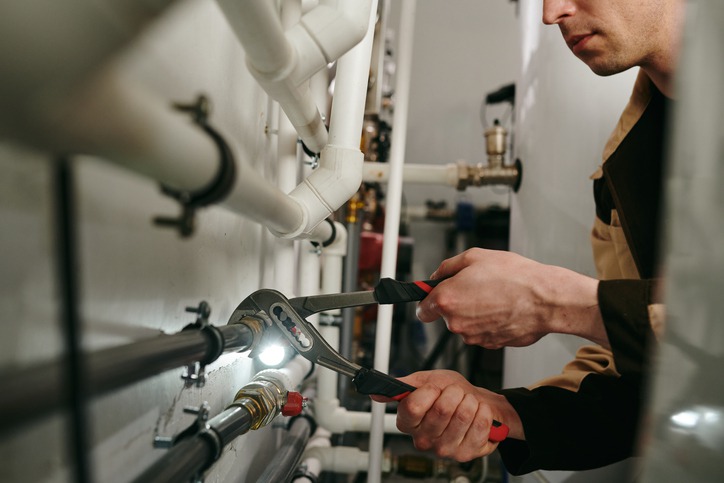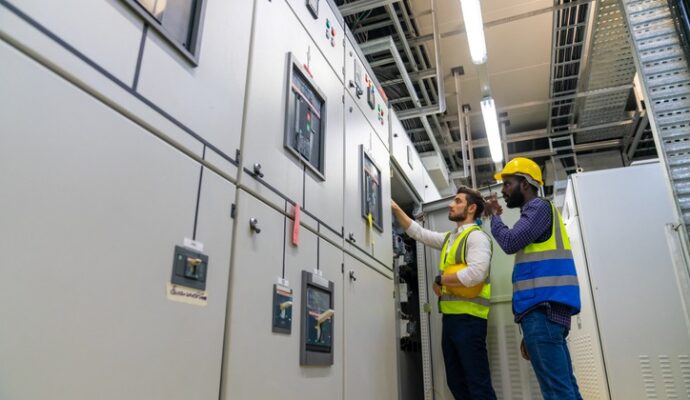When it comes to plumbing, you might think all systems are created equal, but that’s far from the truth. If you’ve ever wondered why commercial plumbing seems more complex, you’re not alone. Understanding these differences can help you address issues more effectively and maintain a functional environment, whether at home or in a business setting. Let’s dive into the key aspects that set these two types of plumbing systems apart.
Knowing the Basics
Scale and Complexity
Commercial plumbing systems are generally much larger and more intricate than residential ones. These systems are designed to handle a higher volume of use, making them capable of serving many people at the same time. Imagine an office building versus a single-family home. The scale of installations, including pipes and fixtures, needs to accommodate far more people, which adds complexity to the system.
Types of Fixtures and Equipment
The types of fixtures used in commercial spaces can be quite different from those in homes. Commercial settings often require heavy-duty fixtures like industrial sinks, high-capacity toilets, and specialized equipment such as grease traps in restaurants. These features need to withstand constant usage without frequent breakdowns.
Differences in Usage and Demand
Peak Usage Times
Residential plumbing has relatively predictable usage patterns, primarily in the mornings and evenings. In contrast, commercial plumbing faces heavy use during business hours. Understanding these peak times is crucial for effective maintenance and preventing issues.
Maintenance and Repairs
With more frequent use, commercial plumbing systems require regular maintenance to ensure everything runs smoothly and efficiently. Neglecting routine checks can escalate problems, leading to costly repairs and even temporary shutdowns. This is where commercial plumbing expertise comes into play, ensuring systems are inspected and serviced regularly to prevent severe issues.
Technical Aspects and Regulations
Regulatory Requirements
Commercial buildings are subject to stricter plumbing codes and regulations, given their high traffic and heavier equipment use. Compliance with these regulations not only ensures safety and efficiency but also avoids legal issues. Residential plumbing is generally only bound by local building codes, which tend to be less restrictive.
Pressure and Volume Considerations
Another crucial difference is how water pressure and flow are managed. Commercial systems often require greater pressure and volume capacities, especially in high-rise buildings. Specialized equipment is necessary to maintain these levels without compromising performance.
Common Issues and Solutions
Frequent Clogs and Blockages
High usage levels make commercial plumbing more prone to clogs, especially in facilities like public restrooms. Businesses often rely on clogged toilet repair services in Cartersville, GA to handle these issues swiftly to minimize downtime and inconvenience to customers or employees.
Emergency Situations
Commercial spaces can face plumbing emergencies more frequently and with higher stakes, given the number of people affected. Having a robust emergency response plan and a reliable plumbing service provider are crucial elements for any business.
Cost Implications
Installation and Maintenance Costs
The initial cost of setting up a commercial plumbing system can be significantly higher than that for a residential system. This includes expenses for more durable materials, complex building plans, and specialized labor. Ongoing maintenance can also add to costs, but it’s essential for preventing major issues down the line.
Energy Efficiency
Many businesses are now focused on green solutions to minimize costs and environmental impact. Investing in water-efficient fixtures is a common strategy that can offer significant savings over time.
Choosing the Right Service Provider
Evaluating Expertise
It’s essential to choose a plumbing service provider that understands the complexities of commercial systems. Not all residential plumbers have the skills required for commercial projects. Always vet potential providers for experience and expertise.
Service Agreements
Many businesses opt for service agreements that ensure regular maintenance and priority assistance in emergencies. These agreements can offer peace of mind and potentially lower costs by catching issues before they become significant.
For businesses, maintaining efficient plumbing systems is critical. Taking the time to understand your facility’s needs can help you make informed decisions. If you ever need professional insight, click here to see more about the best commercial plumbing service providers available.
Wrapping Up
Understanding the differences between commercial and residential plumbing isn’t just for plumbers. Whether you’re a business manager handling large facilities or a homeowner considering upgrades, knowing what sets these systems apart is invaluable. The distinctions in scale, complexity, and regulatory requirements directly impact functionality and efficiency. Commercial systems, designed for heavy usage, require robust maintenance and compliance with stricter codes, while residential systems focus on comfort and convenience.
Recognizing these differences helps in making informed decisions that ensure reliable and efficient plumbing. By choosing the right systems and maintaining them regularly, you can avoid unnecessary headaches and expenses. Efficient plumbing not only supports smooth operations in a commercial setting but also enhances the quality of life at home. Keep these factors in mind, and you’ll foster an environment that works seamlessly with your needs, saving time and resources over the long term.




